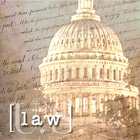
|
US STATE DEPT. MANDATES NEW PASSPORTS WILL CONTAIN RFID TRACKING CHIPS 28 October 2005 The State Department has announced it will introduce new passports with electronic features such as Radio Frequency IDentification chips, intended to match information stored on these chips to the bearer's physical appearance, and to other information. Privacy advocates say the move is a giant leap toward a state of totalitarian interference in citizens' movements and personal information. The chips will reportedly carry 64 kilobytes' worth of digital memory capacity, enough to be prepared to hold additional information, such as digital fingerprints and/or biometric iris scans, if it is decided such information should be included in future. Officials say they intend to implement security provisions designed to prevent unauthorized access, but it is unclear at present whether "skimming" technology, meant to hack into the chips' radio availability, can be stopped in all cases. Fears among critics and skeptics range from the possibility that con artists and even organized crime might tap into the chips via radio frequencies in order to extract sensitive personal information and steal identities in order to commit fraud, to the possibility that tech savvy terrorists would be able to "scan" a location to determine how many Americans might be concentrated in a given location. The fear of such sinister abuses also extends to the possibility that terrorists would target UK and other western nationals—from visa-waiver countries whose governments are required under the Patriot Act to institute electronic passports by next fall. The UK is presently struggling with legislation to institute electronic ID cards and passports which would contain some 13 biometric "prints" as well as other personal information not currently used in common ID cards or passports. According to the Washington Post, "in a federal filing, the [State] department said that 98.5 percent of the 2,335 comments it received since it issued proposed rules last spring opposed the program." That's because the technology itself, as well as the technology used to protect bearers from abusive extraction of their information, remains largely unproven. Simulations testing its reliability or basic functionality don't equate to what the technology will have to defend against once activated in the public domain. It would face untold numbers of innovative technology pirates, looking for a way to "corrupt" the system and use it against those it is supposed to protect. If home computers, banking and credit information provide any example, it will be difficult for authorities to keep up with the pace of such innovators, leaving personal information very much vulnerable to misuse or to fraud. A crucial kink in the plan remains largely uncommented and unreported. If the government were to decide to add "biometric" data to the RFID chips in new passports, a very serious constitutional threshold would be crossed. The legislative and judicial system will very likely have to answer the question of whether constitutional rights against restriction of movement, speech, assembly, "search and seizure", and —yes— even against privacy, can stand for the mandatory recording of such intimate traits for routine government retrieval and identificaton purposes. [For more: Washington Post]
BACKGROUND: The British government's plan to implement a national biometric identification system by 2007 is seen by some as a farcical if dubious exercise in futility. For others, it heralds the final phase in technocracy's closing its grip on the open society. [Full Story] IS YOUR CEREAL BROADCASTING? How much do you know about your cereal, and how much does it know about you? What about your money, your passport, your boarding pass? These are just some of the items in your personal sphere which may soon be broadcasting radio frequencies, testifying to your habits and your movement. RFID, or Radio Frequency IDentification technology, is the reason why. [Full Story] |
||||||
|
|||||||


